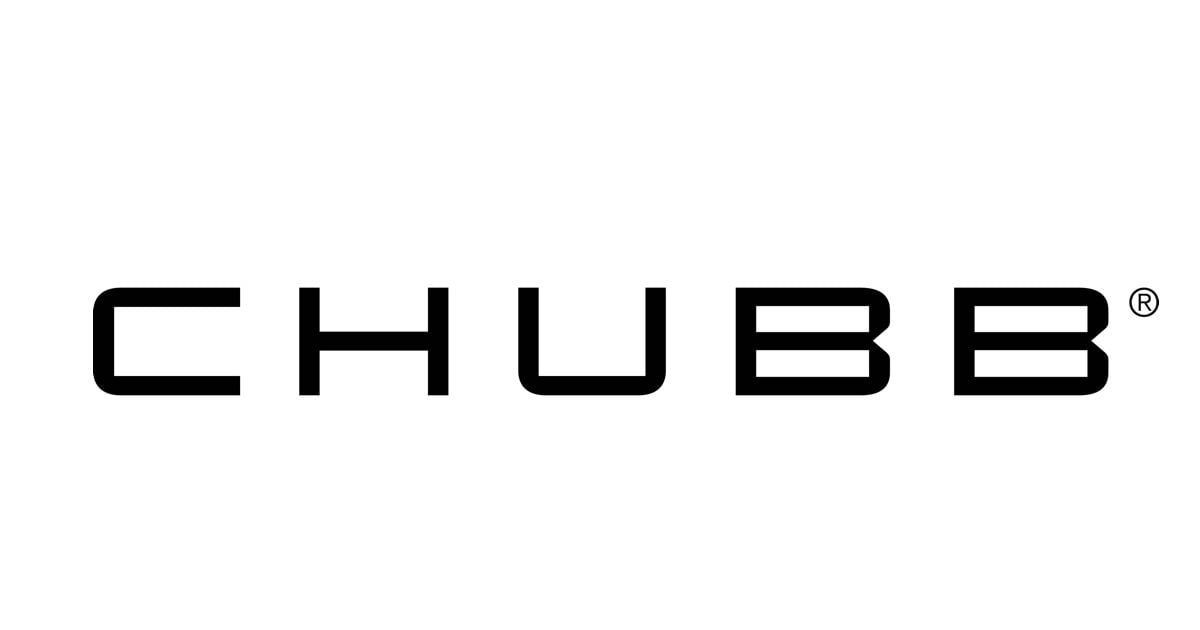Nerdy takeaways
Chubb is the top-rated insurer in Florida, offering the best coverage for high-value homes.
Amica offers the best digital tools for people who want to manage their policy online.
State Farm is our best value pick with an average annual rate of $3,195, as compared to the state average of $3,390 per year.
Cincinnati Insurance draws the lowest rate of consumer complaints.
USAA is our top choice for military families.
Florida home insurance can be expensive and difficult to find. Thanks to natural disasters and high litigation expenses, some insurance companies have raised rates or pulled out of the state in recent years. But the market is recovering, and homeowners have more choices than they used to. Below are some of your best and cheapest options.
Note: Some insurance companies included in this article may have made changes in their underwriting practices and no longer issue new policies in your state. Even if an insurer serves your state, it may not write policies for all homes in all areas.
The best home insurance companies in Florida
Best coverage for high-value homes

Chubb
- Far fewer consumer complaints than expected for a company of its size.
- Standard coverage includes features that many companies offer only as extras.
- Perks to help you protect your home.
- Most consumers can't get a quote online and will instead need to contact a local agent.
Why it’s worth a look: Chubb caters to high-net-worth homeowners with generous coverage for your house and belongings. Chubb policyholders with secondary or seasonal homes in Florida can use the company’s Property Manager service at no charge. With this service, a Chubb representative will check your home after a hurricane and report its condition to you. They can also help prevent further damage and submit a claim on your behalf.
Standout feature: If your home is destroyed and you decide not to rebuild, the company can give you a cash payout.
Average rates: Not available.
» READ MORE: Chubb homeowners insurance review
Best digital tools

Amica
- High customer satisfaction ratings and low consumer complaints.
- Platinum Choice package offers extra coverage.
- Dividend policies can return a portion of your premiums.
- You can start a quote online but may have to finish the buying process by phone.
Why it’s worth a look: Amica may be a good fit for people who prefer to manage their insurance policies online. You can use the website to get a quote, file claims, make payments and upload documents. The company also offers a live chat.
Standout feature: Amica’s Platinum Choice package is for homeowners who want comprehensive coverage. It includes upgraded insurance for valuables such as jewelry, phones and laptops, plus extra coverage for your house.
Average rates: Not available.
» READ MORE: Amica homeowners insurance review
Best value
State Farm
- User-friendly website.
- Agents offer personalized service.
- Policies generally include extra coverage for your home’s structure.
- Below average for claim satisfaction in a recent J.D. Power study.
Why it’s worth a look: State Farm’s average annual rate in Florida is below the state average, making it a good option for affordable coverage. You may be able to save even more money by bundling your homeowners policy with car insurance. Discounts may also be available for installing a burglar alarm system.
Standout feature: State Farm offers a free Ting smart plug to home insurance policyholders as a perk. This device monitors your home’s electrical network to help prevent fires.
Average rates: Below are the average annual rates for a range of dwelling coverage limits.
Dwelling coverage amount | Average annual rate |
|---|---|
$300,000 | $2,520 |
$400,000 | $2,845 |
$500,000 | $3,195 |
$600,000 | $3,635 |
$700,000 | $4,040 |
» READ MORE: State Farm homeowners insurance review
Fewest complaints

Cincinnati Insurance
- Various coverage options.
- Far fewer complaints than expected for a company of its size.
- Coverage available for higher-value homes.
- No online quotes.
- Very little information on website.
Why it’s worth a look: If customer service is important to you, consider Cincinnati Insurance. Of the home insurers we review, it draws one of the lowest rates of consumer complaints to state agencies.
Standout feature: Cincinnati policyholders can get discounts on water shutoff devices from the company’s partners. These devices can detect leaks in your home and turn your water off before damage happens.
Average rates: Not available.
» READ MORE: Cincinnati homeowners insurance review
Best for military families

USAA
- Policies include standard coverage that often costs extra elsewhere.
- Fewer customer complaints to state regulators than expected for a company of its size.
- Perks for military homeowners.
- Available only to active military members, veterans, some federal employees and their families.
Why it’s worth a look: USAA sells homeowners insurance to active military, veterans, some federal workers and their families. Its policies cover military equipment and uniforms without a deductible. If you rent out your home while you’re deployed, you can take advantage of homesharing or landlord coverage options.
Standout feature: Standard policies include coverage for identity theft. This type of insurance often costs extra from other companies.
Average rates: Not available.
» READ MORE: USAA homeowners insurance review
Other top home insurance companies in Florida
These home insurance providers are also worth a look.
Company | NerdWallet star rating | Average annual rate |
|---|---|---|
Not available | ||
Not available | ||
$4,555 |
Common Florida home insurance problems
As a homeowner in Florida, you may face some of the following insurance issues.
Hurricanes and tropical storms. These disasters typically cause two types of damage — wind and water. A standard homeowners policy won’t cover flood damage, so you may need to buy separate coverage. (See our full guide to flood insurance.) Most policies do cover wind damage, but people in high-risk coastal locations may need to buy this coverage separately, too. Learn more about hurricane insurance.
To check your flood risk, start with the federal government’s flood maps. However, these maps don’t always capture all types of flood risk. You may want to check another source such as First Street, a company that models climate hazards. Enter your address at the top of the page to see your home’s flood risk rating.
Multiple deductibles. Your homeowners policy may have a separate deductible for hurricane damage claims. Say you've chosen a $1,000 deductible for your policy. The hurricane deductible may be a higher amount, such as 2% of your dwelling coverage limit. On a house with $400,000 in dwelling coverage, you’d be responsible for the first $8,000 of hurricane-related repairs.
High prices. A few years ago, Florida’s home insurance industry was in crisis. Natural disasters and expensive litigation led to companies raising prices, going bankrupt or leaving the state. The state legislature passed a series of bills in 2022 and 2023 to help reduce lawsuits and stabilize the market. New companies have since entered the state, and some insurers have even filed for rate decreases. But prices remain high overall, especially in the riskiest parts of Florida.
Sinkholes. By law, homeowners insurers in Florida must offer coverage for “catastrophic ground cover collapse,” a specific type of sinkhole damage. Because this coverage won’t help with all potential scenarios, you may want to add separate sinkhole coverage to your policy.
Citizens Property Insurance Corporation
Citizens is a government entity created in 2002 by the Florida Legislature. It serves as an "insurer of last resort" for Florida homeowners who can't get coverage on the private market. You may qualify for insurance from Citizens if:
You can’t find a standard insurer willing to sell you a policy.
The premiums from other insurers are more than 20% higher than the Citizens rate.
A severe storm could be costly for Citizens policyholders. If Citizens can't pay all its claims, it’s legally required to charge an assessment to make up for the shortfall. Note that all Florida policyholders could be assessed, even those who aren’t Citizens customers.
Read our Citizens home insurance review for further details.
If you have homeowners insurance from Citizens, you’ll be required to buy flood insurance. Learn more about flood insurance in Florida.
Common optional coverage
A standard homeowners policy can sometimes fall short, so it's worth looking for ways to make it more comprehensive. For example, we recommend asking if your insurer offers extended or guaranteed replacement cost coverage for your home. These add-ons give you extra dwelling coverage in case it costs more than you expect to rebuild your home after a disaster. Having this coverage can be a useful hedge against inflation.
Here are a few additional types of coverage you may want to buy.
Floods are the most common weather disaster in the U.S. and can happen anywhere, not just coastal areas. You can buy flood insurance through the federal government or from private companies. Learn whether you need flood insurance.
Homeowners policies generally won’t cover damage if a drain backs up into your home or your sump pump fails. Adding water backup coverage can help with these issues.
Homeowners policies may cover your stuff on an actual cash value or replacement cost basis. With actual cash value, the policy will pay less for older items that have lost value over time. To get enough of a claim payout to buy brand-new items, opt for replacement cost coverage.
If you have expensive jewelry, fine art or other valuables, you may need extra insurance for them. Learn more about scheduled personal property coverage.
Service line coverage pays to fix damaged water, gas, sewer or other underground lines on your property.
If your HVAC system or another major appliance fails, equipment breakdown coverage can help pay for repairs.
How much does homeowners insurance cost in Florida?
The average cost of homeowners insurance in Florida is $3,390 per year, or about $283 per month. That's 13% more expensive than the national average of $3,005 per year for the same amount of coverage.
These rates are based on a sample home insurance policy with $500,000 in dwelling coverage, $300,000 in liability coverage, a $1,000 deductible and no recent claims.
Did you know...
The dwelling coverage limit on your policy should be the amount it would take to rebuild your home, based on the cost of labor and construction in your area. It won't necessarily be the price you paid for the house or how much you could sell it for now. Use our calculator to estimate your home's rebuilding cost.
The median rebuilding cost for Florida homes is $494,856, according to data from First Street.
Below are the average rates for policies with various dwelling coverage limits.
Dwelling coverage amount | Average annual rate |
|---|---|
$300,000 | $2,320 |
$400,000 | $2,845 |
$500,000 | $3,390 |
$600,000 | $4,075 |
$700,000 | $4,760 |
The rates above are for homeowners with good credit. In Florida, policyholders with poor credit pay an average of $5,180 per year — an increase of 53%.
Average cost of homeowners insurance in Florida by city
The amount you pay will vary depending on where you live in the state. For example, the average cost of homeowners insurance in Miami is $8,345 per year, while Tallahassee homeowners pay $2,640 per year, on average.
City | Average annual rate | Average monthly rate |
|---|---|---|
Boca Raton | $4,275 | $356 |
Cape Coral | $3,695 | $308 |
Clearwater | $3,470 | $289 |
Coral Springs | $6,825 | $569 |
Deltona | $2,850 | $238 |
Fort Lauderdale | $6,525 | $544 |
Fort Myers | $3,725 | $310 |
Gainesville | $2,895 | $241 |
Hialeah | $8,310 | $693 |
Hollywood | $6,525 | $544 |
Jacksonville | $3,145 | $262 |
Lakeland | $3,905 | $325 |
Miami | $8,345 | $695 |
Miami Gardens | $8,030 | $669 |
Orlando | $3,765 | $314 |
Palm Bay | $3,295 | $275 |
Palm Coast | $3,135 | $261 |
Pembroke Pines | $5,685 | $474 |
Plantation | $6,825 | $569 |
Pompano Beach | $5,685 | $474 |
Port St. Lucie | $4,630 | $386 |
St. Petersburg | $3,195 | $266 |
Tallahassee | $2,640 | $220 |
Tampa | $3,805 | $317 |
West Palm Beach | $4,160 | $347 |
The cheapest home insurance in Florida
Here are the insurers we found with the cheapest rates for a variety of dwelling coverage limits.
Company
NerdWallet star rating
Average annual rate
People's Trust
Not rated
$1,320
$1,470
Tower Hill
Not rated
$1,655
Citizens Property Insurance
Not rated
$1,960
American Integrity
Not rated
$2,345
Company
NerdWallet star rating
Average annual rate
People's Trust
Not rated
$1,715
$1,720
Tower Hill
Not rated
$2,160
Citizens Property Insurance
Not rated
$2,570
$2,845
Company
NerdWallet star rating
Average annual rate
People's Trust
Not rated
$2,110
$2,315
Tower Hill
Not rated
$2,660
Citizens Property Insurance
Not rated
$3,175
$3,195
Company
NerdWallet star rating
Average annual rate
People's Trust
Not rated
$2,510
$2,615
Tower Hill
Not rated
$3,160
$3,635
Citizens Property Insurance
Not rated
$3,815
Company
NerdWallet star rating
Average annual rate
People's Trust
Not rated
$2,905
$3,080
Tower Hill
Not rated
$3,660
$4,040
Citizens Property Insurance
Not rated
$4,485
Cheap homeowners insurance in Florida by claims history
Here are the cheapest home insurance companies in Florida for homeowners who've filed a recent claim.
Company | NerdWallet star rating | Average annual rate |
|---|---|---|
People's Trust | Not rated | $2,110 |
$2,550 | ||
Tower Hill | Not rated | $2,660 |
Citizens Property Insurance | Not rated | $3,175 |
$3,530 |
These rates are based on a sample homeowner with good credit, $500,000 of dwelling coverage, $300,000 of liability coverage and a $1,000 deductible.
Cheap homeowners insurance in Florida by credit score
Here are the cheapest home insurance companies in Florida for homeowners with poor credit. Read more about how your credit scores impact home insurance rates.
Company | NerdWallet star rating | Average annual rate |
|---|---|---|
Citizens Property Insurance | Not rated | $3,230 |
Florida Peninsula | Not rated | $3,850 |
People's Trust | Not rated | $4,325 |
$4,455 | ||
American Integrity | Not rated | $4,600 |
These rates are based on a sample home insurance policy with $500,000 in dwelling coverage, $300,000 in liability coverage, a $1,000 deductible and no recent claims.
Get home insurance quotes in minutes
Answer a few questions to see custom quotes and find the right policy for you.Common discounts
Make sure to ask your home insurance company about any discounts you may be eligible for. Here are some of the most common:
Many insurers offer savings if you buy more than one policy, such as home and car insurance. See our picks for the best home and auto insurance bundles.
Got a burglar alarm, smoke detectors or a smart device that alerts you if you have a leak? Safety and security features like these could earn you a discount.
Sign up for paperless billing or set your premiums to autopay, and you could get a discount.
Many insurance companies give discounts to customers who’ve gone a certain number of years without filing a home insurance claim.
Some insurers offer discounts to new policyholders or reward those who’ve stuck around for a while.
Teachers, doctors, members of the military and others may be eligible for discounts from certain insurers.
Learn more about common home insurance discounts.
Florida insurance department
The Florida Office of Insurance Regulation oversees the state’s insurance industry. You can use the agency’s website to file a complaint against your insurance company and learn more about insurance. The agency’s toll-free helpline is 877-693-5236.
How we review home insurance
Our editorial team considers these factors when rating homeowners insurance companies:
This part of our star rating is based largely on consumer complaints to state regulators, as reported by the National Association of Insurance Commissioners. When available, we also include each company’s performance in the most recent J.D. Power Home Insurance Study. Other factors in our consumer experience score include customer-friendly features such as online claims filing and quotes.
We use AM Best and Demotech ratings to confirm each insurer’s long-term financial stability and ability to pay claims.
Companies score higher if they offer many common endorsements and include more comprehensive coverage in their standard plans. In particular, we look at features such as extended coverage for the structure of your home and replacement cost coverage for personal belongings.
We evaluate how many of the most common home insurance discounts each company offers.
See our complete homeowners insurance rating methodology.
Frequently asked questions
Homeowners insurance isn’t required by law in Florida. However, if you have a mortgage, your lender will likely require you to buy a policy. For more information, read Is Homeowners Insurance Required?
Some of the biggest providers in the state include Universal Property, State Farm, Florida Peninsula, Slide and Tower Hill, according to 2024 data from the National Association of Insurance Commissioners (the most recent data available). Citizens Property Insurance, the state’s insurer of last resort, is also a major provider.
Most homeowners policies cover damage from wind but not flooding, so you could have a major coverage gap if a hurricane strikes. Flood insurance may be a smart buy. Note that if you live in a high-risk coastal area, your home insurance may not cover wind either. Read your policy or check with your agent to make sure you have the right coverage.
Star rating methodology
NerdWallet’s homeowners insurance ratings reward companies for customer-first features and practices. Ratings are based on weighted averages of scores in several categories, including financial strength, consumer complaints, coverage, discounts, claims process and website functionality. These ratings are a guide, but we encourage you to shop around and compare several insurance quotes to find the best rate for you. NerdWallet does not receive compensation for any reviews or star ratings.
Here’s how we weighted each category to come up with our list of the best home insurance companies:
Consumer experience (40%).
Financial strength (30%).
Coverage (25%).
Discounts (5%).
Read our full home insurance ratings methodology for more details.
Homeowners insurance rates methodology
NerdWallet calculated median rates for 40-year-old homeowners from various insurance companies in ZIP codes across all 50 states and Washington, D.C. All rates are rounded to the nearest $5.
Sample homeowners were nonsmokers with good credit living in a single-family, two-story home built in 1984. They had a $1,000 deductible and the following coverage limits:
$500,000 in dwelling coverage.
$50,000 in other structures coverage.
$250,000 in personal property coverage.
$100,000 in loss of use coverage.
$300,000 in liability coverage.
$1,000 in medical payments coverage.
We made minor changes to the sample policy in cases where rates for the above coverage limits or deductibles weren’t available.
In states where credit is a rating factor, we changed the credit tier from “good” to “poor,” as reported to the insurer, to see rates for homeowners with poor credit.
In select states, we added a single wind damage claim to see rates for homeowners with a claim on their record.
These are sample rates generated through Quadrant Information Services. Your own rates will be different.
Complaint methodology
NerdWallet examined complaints received by state insurance regulators and reported to the National Association of Insurance Commissioners in 2022-2024. To assess how insurers compare with one another, the NAIC calculates a complaint index each year for each subsidiary, measuring its share of total complaints relative to its size, or share of total premiums in the industry. To evaluate a company’s complaint history, NerdWallet calculated a similar index for each insurer, weighted by market shares of each subsidiary, over the three-year period.
NerdWallet conducts its data analysis and reaches conclusions independently and without the endorsement of the NAIC. Ratios are determined separately for auto, home (including renters and condo) and life insurance.
Rebuilding cost methodology
The median home rebuilding cost referenced above is based on 2025 replacement cost data from First Street, a climate risk modeling firm. Actual replacement costs may vary based on factors like location, square footage, construction materials, the age of your home and local labor costs.







